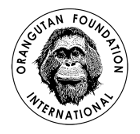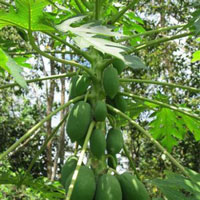You may already know that Orangutan Foundation International (OFI) is dedicated to orangutan research and rehabilitation but you may be surprised to learn that we have expanded our research focus to include sustainable agriculture. OFI’s Orangutan Care Centre and Quarantine (OCCQ) is located in Pasir Panjang, Kalimantan – a small village just outside of the… Continue reading Sustainable Agriculture for Orangutans

